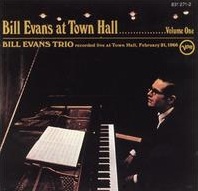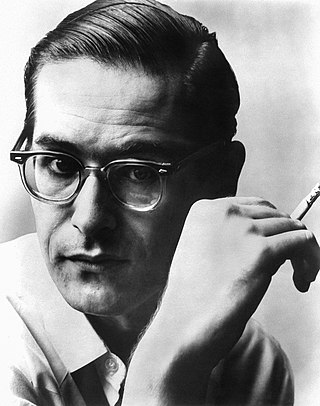
William John Evans was an American jazz pianist and composer who worked primarily as the leader of his trio. His use of impressionist harmony, block chords, innovative chord voicings, and trademark rhythmically independent, "singing" melodic lines continue to influence jazz pianists today.

Portrait in Jazz is the fifth studio album by American jazz pianist Bill Evans as a leader, released in 1960. It is the first of only two studio albums to be recorded with his famous trio featuring bassist Scott LaFaro and drummer Paul Motian.
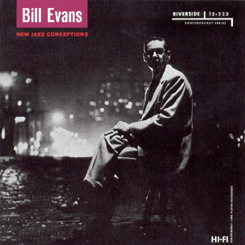
New Jazz Conceptions is the debut album by jazz pianist Bill Evans, recorded in two sessions during September 1956 for Riverside Records.
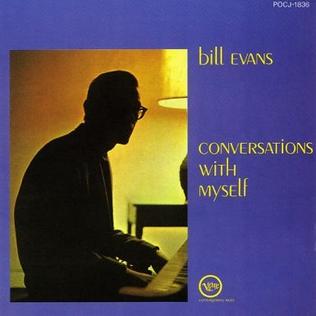
Conversations with Myself is a 1963 album by American jazz pianist Bill Evans recorded for Verve Records.

The Tony Bennett Bill Evans Album is a 1975 studio album by singer Tony Bennett and pianist Bill Evans.
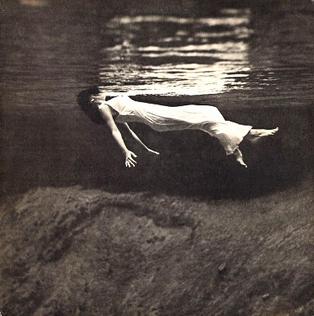
Undercurrent is a 1962 jazz album by pianist Bill Evans and guitarist Jim Hall. The two artists collaborated again in 1966 on the album Intermodulation.
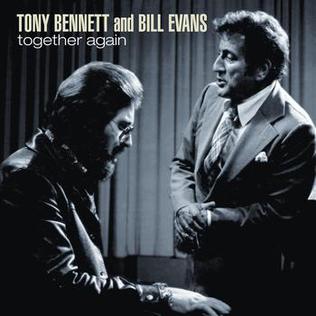
Together Again is a 1977 studio album by singer Tony Bennett and jazz pianist Bill Evans. It was originally issued on Bennett's own Improv Records label, which went out of business later that year, but was subsequently reissued on Concord.

Intermodulation is a 1966 jazz album by pianist Bill Evans and guitarist Jim Hall.

Know What I Mean? is a 1962 jazz album by alto saxophonist Julian "Cannonball" Adderley, accompanied by Bill Evans and the rhythm section of the Modern Jazz Quartet. It was released on the Riverside label as RLP-433.

Everybody Digs Bill Evans is a trio and solo album by jazz pianist Bill Evans. It was released in early 1959 on the Riverside Records label.

You Must Believe in Spring is an album by American jazz pianist Bill Evans, recorded by him with bassist Eddie Gómez and drummer Eliot Zigmund in August 1977 and released in February 1981, shortly after Evans's death in September 1980.

Alone is a solo piano album by jazz musician Bill Evans, recorded in the fall of 1968 for Verve Records, featuring a particularly notable 14+-minute performance of the jazz standard "Never Let Me Go." Evans contributed notes to the album, including the following statement:
Perhaps the hours of greatest pleasure in my life have come about as a result of the capacity of the piano to be in itself a complete expressive musical medium. In retrospect, I think that these countless hours of aloneness with music unified the directive energy of my life. At those times when I have achieved this sense of oneness while playing alone, the many technical or analytic aspects of the music happened of themselves with positive rightness which always served to remind me that to understand music most profoundly one only has to be listening well. Perhaps it is a peculiarity of mine that despite the fact that I am a professional performer, it is true that I have always preferred playing without an audience. This has nothing to do with my desire to communicate or not, but rather I think just a problem of personal self-consciousness which had to be conquered through discipline and concentration. Yet, to know one is truly alone with one’s instrument and music has always been an attractive and conducive situation for me to find my best playing level. Therefore, what I desired to present in a solo piano recording was especially this unique feeling.

I Will Say Goodbye is an album by American jazz pianist Bill Evans, recorded in 1977 but not released until January 1980. It was his final album for Fantasy Records, making the title quite appropriate.
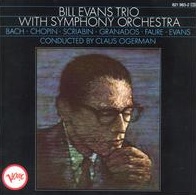
Bill Evans Trio with Symphony Orchestra is an album by American jazz pianist Bill Evans and his trio, released in 1966, featuring jazz arrangements of works by classical composers Granados, J.S. Bach, Scriabin, Fauré, and Chopin. The trio is accompanied by an orchestra consisting of strings and woodwinds arranged and conducted by Claus Ogerman. Originals by both Evans and Ogerman are also included.

Quintessence is an album by American jazz pianist Bill Evans. It was recorded in 1976 for Fantasy Records and released the following year. At this time usually playing solo or with his trio, for these sessions Evans was the leader of an all-star quintet featuring Harold Land on tenor saxophone, guitarist Kenny Burrell, Ray Brown on bass, and Philly Joe Jones on drums.
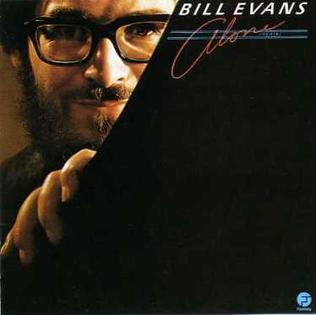
Alone (Again) is a solo piano album by American jazz pianist Bill Evans, recorded in December 1975. A follow-up to his earlier solo album Alone, it was released in 1977 on Fantasy Records and reissued on CD in 1994 by Original Jazz Classics. At the time it was recorded, Evans had been playing an increasing number of solo dates and was inspired after hearing Marian McPartland play solo in Monterey. Evans's manager Helen Keane commented:
As much as Bill enjoyed playing alone at home, and although by this time he regularly included a solo section in his concert program, he found recording in this context very difficult. It was probably the only area he felt insecure about musically, and the fact that he'd gotten a Grammy for Alone didn't seem to help.
"Waltz for Debby" is a jazz standard composed by pianist Bill Evans, which became "his most famous tune." He first recorded it as a brief solo piano piece on his debut album, New Jazz Conceptions (1956). Lyrics were added about six years later by Evans's friend Gene Lees. "Debby" in the composition's title refers to Evans's then 3-year-old niece, Debby Evans, whom he often took to the beach.

The Gary McFarland Orchestra is an album by composer, conductor, and vibraphonist Gary McFarland with an orchestra featuring guest soloist jazz pianist Bill Evans recorded in early 1963 for Verve.

The Tokyo Concert is a live album by jazz pianist Bill Evans with bassist Eddie Gómez and drummer Marty Morell recorded at the Yūbin Chokin Hall in Tokyo, Japan, in 1973 and released on the Fantasy label.
Time Remembered is a modal jazz standard composed by jazz pianist Bill Evans.
